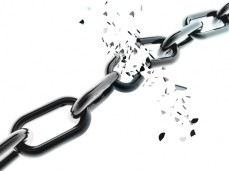 Are you willing to trade your dollar in exchange for a penny? Then why would you exchange a beautiful relationship for quick cheap pleasures?
Are you willing to trade your dollar in exchange for a penny? Then why would you exchange a beautiful relationship for quick cheap pleasures?
Addiction doesn’t just destroy your relationship with the God Almighty. It destroys every other beautiful relationship you have on earth as well: your significant other, children, parents, coworkers, and other members of the community. Perhaps you have been the victim of addiction, having witnessed a parent come home drunk and fly into a drunken rage. Or you have witnessed sexual addiction tear your parents’ marriage apart by way of pornography or adultery.
- About 43% of adults in the United States – 76 million Americans – have been exposed to alcoholism in the family. They grew up with or are married to an alcoholic, or they have a blood relative who is an alcoholic. (Alcoholism Statistics, 2013)
- Children of alcoholics are 8 times more likely to develop an addiction (Merikangas, Stolar, Stevens, Goulet et al., 1998)
- In a sample of 6,268 adults, adult offspring of parents with addiction were 50% more likely to develop depression than their peers (Fuller-Thomson, Katz, Phan, Liddycoat & Brennenstuhl, 2013)
What does addiction destroy?
– Intimacy
– Self-worth
-Brain cells
-Your soul
-Relationship with God
-Significant relationships in your life
Overcoming addiction often requires more than just a little help from friends and family. In order to achieve the satisfaction you want in life, you have to reach out and ask for help.
Jesus came to Earth so you could have life to the full (John 10:10). Addiction holds you back from having that full life that God wants for you. Sometimes addiction is a disease handed down through genetics; other times it’s induced by trauma, peer pressure or just personal choice. If there’s anything in your life that is spinning out of control, or if close friends and family have expressed their concerns to you about certain habits or lifestyle choices you’ve made, it is time to consider: Would you rather have a dollar or a penny?
#Lifetothefull #Addiction #Musings4Life #addictionholdsyouback
References
Merikangas, K. R., Stolar, M., Stevens, D. E., Goulet, J., et al., Familial transmission of substance use disorders. Arch Gen Psychiatry, 1998.55(11): p. 973-9.
Esme Fuller-Thomson, Robyn B. Katz, Vi T. Phan, Jessica P.M. Liddycoat, Sarah Brennenstuhl. The long arm of parental addictions: The association with adult children’s depression in a population-based study. Psychiatry Research, 2013; DOI:10.1016/j.psychres.2013.02.024








